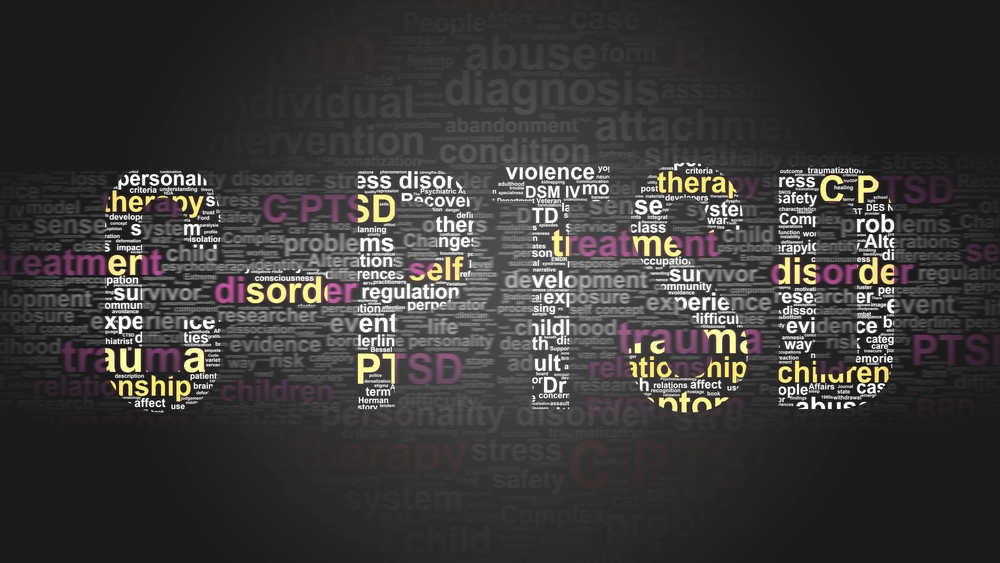
Complex PTSD and Childhood Trauma
Complex post-traumatic stress disorder, or C-PTSD, is a type of post-traumatic stress disorder (PTSD) caused by chronic, long-lasting, or repeated traumatic events. For example, child abuse or childhood trauma — physical abuse, emotional abuse, sexual abuse, and neglect — often develops into C-PTSD. Continue reading to learn more about C-PTSD and childhood trauma.
The Impact of Childhood Trauma on the Brain and Body
While it’s not always easy to pinpoint exactly why some people develop C-PTSD and others don’t, it seems clear that repeated traumatic events — like abuse or neglect — can have lasting effects.
The brain and body are still developing in childhood and are strongly affected by stressors like neglect or other abuse. C-PTSD often occurs before a child’s cognitive abilities and sense of self have fully developed, affecting how the brain and communication systems will eventually develop. When children have C-PTSD, their brain learns to constantly assume and respond to minor signs of a possible threat. Adrenaline and cortisol continuously flood the body as a result.
Since fighting back or running away rarely is an option, the child will instead shut down, dissociate, and freeze. However, adrenaline and cortisol continue throughout the body, affecting the immune and digestive systems and possibly causing psychosomatic symptoms.
How C-PTSD Affects Adulthood
Because children rarely understand that their body’s response is a reaction to chronic trauma, the behavior patterns they develop follow them into adulthood, even when their environment is seemingly safe. Their stress response is hyperactive and causes an increase of adrenaline and cortisol at the slightest perceived threat, as a result of responding to constant trauma.
Survivors can also experience changes in consciousness, personal relationships, and how they view themselves, the perpetrator, and the world due to C-PTSD. In addition, many people might experience dissociation or repress memories of the event or flashbacks where they relive the event.
C-PTSD can cause multiple problems in relationships and the workplace. For example, individuals who have experienced C-PTSD often isolate themselves and do not trust others easily.
In some instances, it can also cause individuals to try and override the stress response by indulging in high levels of drugs, alcohol, spending, sex, and working. Others may inadvertently try to recreate the traumatic childhood event through behaviors or relationships either because it is familiar or because they are trying to fix it.
In addition, adult survivors of C-PTSD can experience problems regulating their emotions, leading to severe depression, suicidal thoughts, or problems controlling their anger. They may also view themselves as being different from others causing feelings of detachment, helplessness, shame, and guilt.
Getting a Diagnosis
C-PTSD is not a simple diagnosis. Many factors contribute to whether or not a person develops C-PTSD, and it can take years for those suffering from this condition to be able to identify their symptoms and get help. Often, people who have C-PTSD may not realize they have the condition until later in life when they pursue therapy or self-help.
Even if you think you might have developed C-PTSD, it can be difficult for others — even counselors and psychologists — to diagnose this condition without first discussing your personal history. In addition, because there are so many different ways people experience trauma, there’s no one “right” way for someone with C-PTSD symptoms to present themselves.
Complex PTSD Is Challenging To Treat
Because the symptoms of C-PTSD are ingrained at a conscious and unconscious level throughout a person’s entire life span, it can be challenging to treat. Complex PTSD stemming from childhood trauma — physical abuse, emotional abuse, sexual abuse — can lead to severe emotional problems later in life. In addition to having an increased risk for complex PTSD, other mental health issues like depression and anxiety may also be more common in people who experience childhood trauma.
According to one study published in The Lancet Psychiatry Journal, individuals with early-life adversity were almost twice as likely to meet the criteria for major depressive disorder at age 21 as those without early-life adversity.
Recovery Is Possible
Despite the complexity of your trauma and its aftermath, recovery is possible. If you’ve struggled with C-PTSD symptoms for years, it may seem like a daunting task to begin healing. However, even if you’ve had a history of C-PTSD, even if your symptoms are severe and deeply ingrained — you can get better!
Everyone’s journey is unique, and yours may be more complicated than someone else’s, but each individual’s journey is essential. You deserve a life full of love and joy, just like anyone else. Fortunately, there are people who can help guide you along the way: counselors specializing in childhood abuse that causes C-PTSD and trauma-focused therapy techniques.
In addition, EndCAN’s survivor community support group, Louder Than Silence, through Inspire, is a free, online community filled with authentic people anonymously sharing their experiences without judgment and learning from others who have “been there.” It’s a safe place that enables child abuse survivors to share their stories when they’re ready, so other adult survivors of child abuse know they’re not alone either.
Recovery is not linear; it’s about making small changes that add to improvements in how you feel about yourself and the world around you. It isn’t a destination where everything feels “good or normal.” Instead, it’s an ongoing journey of self-discovery that will continue to give you new meaning as you grow as an individual throughout your lifetime.
Recovery is possible for anyone with complex PTSD. It’s not easy and can be a long process, but you are worth the effort. Your brain and body will continue to develop throughout your life, so there is hope even if you experience symptoms of complex PTSD.
Help Us End Child Abuse
If you or a loved one is an adult survivor of child abuse, EndCAN is always here for you with valuable resources, including information and tips about parenting and support to help you learn and heal. EndCAN will be with you on your path to healing.
